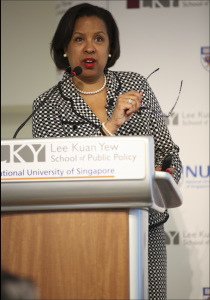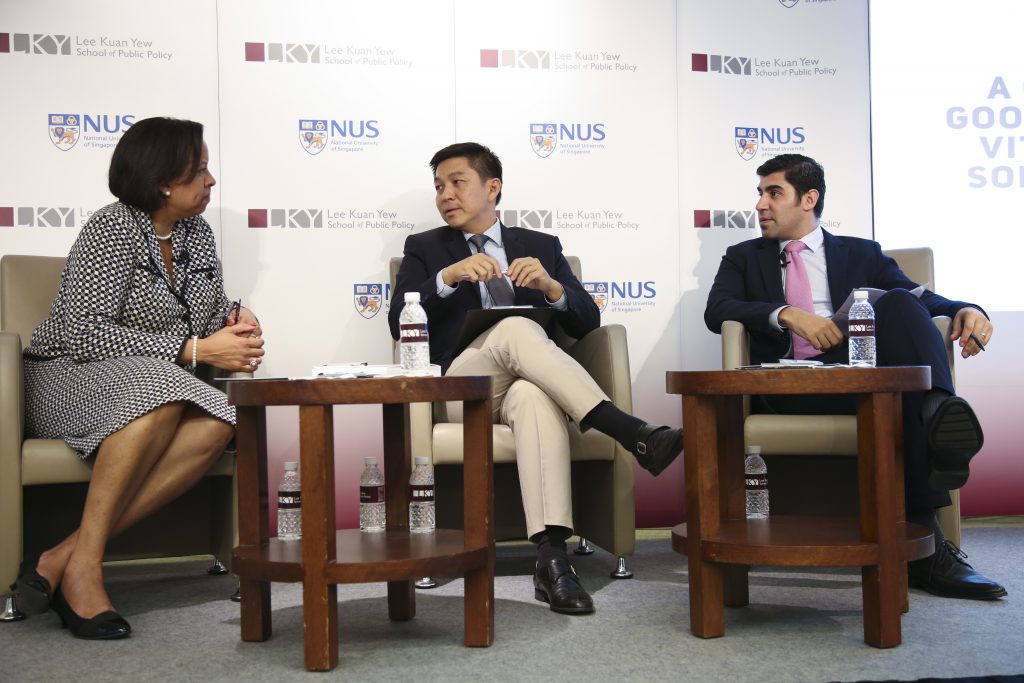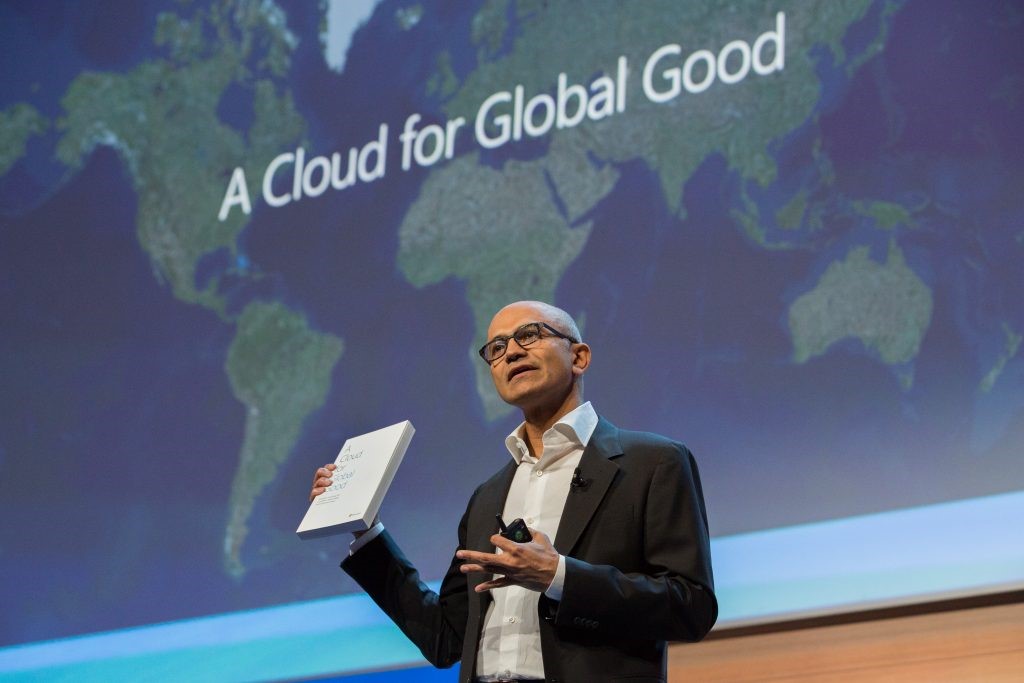When we look at the incredible transformation digital technologies are driving in our economies and societies, we should not ignore the disruption these technologies also bring.
Technology has increased the digital literacy of refugees by enabling them to ‘speak’ the language of the countries they are settling into, and aided countries in post-earthquake recovery by determining the safety of demolitions and compensating victims for debris removal. But the same technologies that rebuild lives can be misused for crimes like cyber-hacking and human trafficking.
At the heart of these technological advances is cloud computing, which will power what has been called the Fourth Industrial Revolution. But before we hurtle into this new era, isn’t it worthwhile to ask how do we ensure that this cloud not only serves the fortunate few, but serves the world as a whole?
This was the question posed by Brad Smith, Microsoft’s president and chief legal officer, to an audience of 2,000 business leaders, developers and entrepreneurs on October 3, 2016 in Dublin. It is also the question “A Cloud for Public Good” – a new book launched by Microsoft at the very same gathering, seeks to address.
While the book does not contain answers, it proposes 78 policy recommendations across 15 areas, ranging from privacy, security, and safety to environmental sustainability, artificial intelligence, and education and jobs skills training. It also outlines what a cloud for public good should be – “more trusted, more responsible and more inclusive”, in the words of CEO Satya Nadella.
Seven thousand miles away in Singapore, the launch of the Microsoft Asia Transparency Center & Cybersecurity Center was happening at around the same time. The joint facility – Microsoft’s first worldwide, is a physical commitment to the company’s Trust principles: security, privacy, transparency, and compliance.
“This new facility is designed around those principles”, said Toni Townes-Whitley, corporate vice president, Worldwide Public Sector, Microsoft, who was in town for the launch. By allowing Asian governments to review the source code of Microsoft products, “you will experience our commitment to transparency and delivering products and services that are secure by principle and by design.”
During her trip, Townes-Whitley also participated in a panel discussion organized by the Lee Kuan Yew School of Public Policy, aptly titled “A Cloud for Global Good: Technology as a Vital Resource for Solving the World’s Problems”.
The panel discussion featured Mr. Tan Chuan-Jin, Singapore Minister for Social and Family Development, and was moderated by Dr. Parag Khanna, Senior Research Fellow, Centre on Asia and Globalisation, Lee Kuan Yew School of Public Policy.

During the discussion, Townes-Whitley spoke about the power and paradox of digital transformation, echoing the view that the very technology companies are introducing to improve the world can also destroy it. With opportunity comes challenges; technology can be used to diagnose pancreatic cancer earlier, and to provide affordable Internet access to rural communities, but it is also exacerbating global issues like job displacement, diminishing privacy, and income inequality.
Minister Tan addressed concerns about job displacement, where he felt that there is a need for Singapore to shift towards a horizontal, peer-to-peer economy: “We need to transit to that kind of economy because otherwise, I think if you remain the traditional, vertical-sliced ones, I think you will find it a challenge to navigate that space.”
Townes-Whitley believes tech companies are responsible for ensuring that the scale tips towards public good, as their products and services are used by millions around the world. On Microsoft’s support of the United Nations’ Sustainable Development Goals, she revealed that it is focusing on the areas of government, public safety and national security, health, education, and building next-generation cities.
“All of our solutions, our engineering, our philanthropic efforts, our research – are now driving towards these goals”, she shared. “It is my hope that some point in the future, that we will be held accountable to these types of goals. That is what you want technology companies to start to show.”
Townes-Whitley also expressed her excitement about the dialogue about policy and legal reforms that the “A Cloud for Public Good” book is trying to start. She feels that progress needs to be made in negotiating trade-offs brought about by technology, such as between personal privacy and public safety. “Those kinds of trade-offs have not been talked about in open form, not as strongly as they should have.”

Summing up her responses, Townes-Whitley remarked that, all things considered, she remains an optimist about the social implications of technology.
Watch videos of Toni Townes-Whitley’s address and the Q&A below.
(Video credits: Lee Kuan Yew School of Public Policy)
Read the online copy of “A Cloud for Public Good” here.





